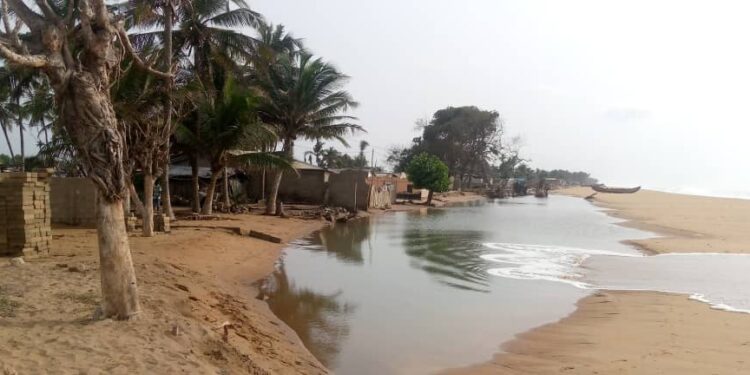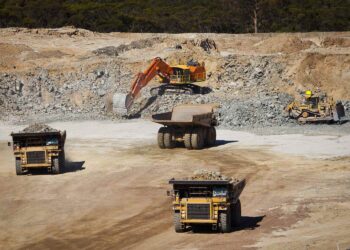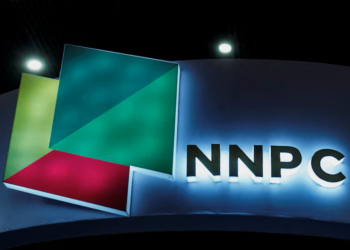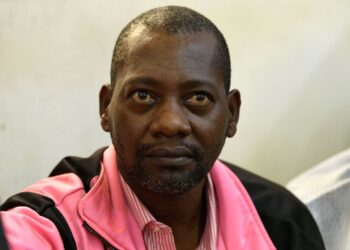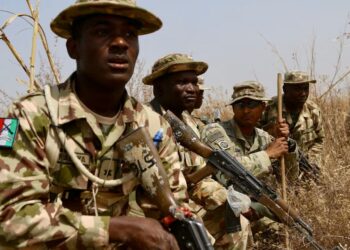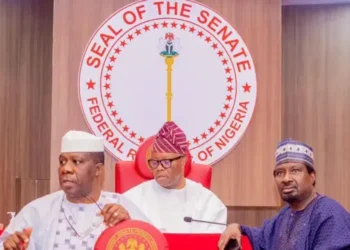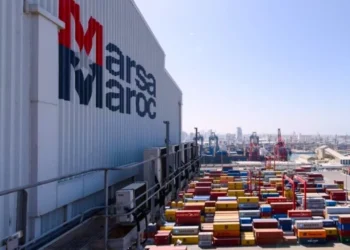The World Bank saw it coming in 2019—20 million people would be living along West Africa’s 3,400-kilometer coastline. By 2023, the IPCC made it official: rising seas, coastal erosion, and global warming will hit this region harder in the 21st century than ever before. Ghana and Togo, which were once home to thriving coastal communities, are watching their land disappear under the waves, with families uprooted, infrastructure wiped out, and livelihoods shattered. Rising seas, stronger storms, and relentless wave action are at play, but human hands are making it worse—sand mining, unchecked construction, and river dams starving coastlines of the sediment they desperately need.
The fallout? Agriculture, fisheries, tourism—entire economies are on the line. Villages are vanishing. Historical landmarks are eroding. Roads and ports are next in line for destruction. And the so-called solutions—seawalls, groynes—too often do more harm than good, pushing the problem further down the shore.
This article explores the forces fueling this crisis, the devastation already unfolding, and, more importantly, the strategies that could save West Africa’s disappearing coastline.
The Frontline of the Disappearing Coastline
Coastal erosion in Ghana and Togo isn’t just a problem; it’s a crisis that has seen entire communities displaced, and roads, ports, and airports are at risk. And while both governments have tried to fight back, their interventions have often made things worse, accelerating shoreline retreat in other areas.
Ghana’s 540-kilometer coastline is taking a beating, with Ada Foah, Keta, and James Town among the worst hit. In the Volta Region, entire villages—Fuveme, Dzakplagbe—have lost over 500 homes since 2017, as the sea swallows land at a staggering five meters per year. Even Fort Prinzenstein, a UNESCO-listed relic of the transatlantic slave trade, has been reduced to just 10% of its original structure since 1907.
The $100 million Keta Sea Defense Project (KSDP), launched in 2000, was meant to be a game-changer. It protected Keta, but at a cost—severe erosion eastward in Agavedzi and Aflao, where retreat rates jumped by 50% due to sediment disruption. The financial toll? $20 million in lost coastline revenue, with fishing, tourism, and real estate taking the hardest hit.
Togo’s 56-kilometer coastline isn’t faring any better. Lomé’s main port and airport are at risk, and the Port-Aneho corridor is vanishing at 12 meters per year. Some areas, like Aflao is actually gaining sediment as it shifts, but the country’s reliance on groynes, sandbags, and beach nourishment isn’t a long-term fix.
Without a coordinated regional strategy, both countries are on a collision course with escalating economic losses, mass displacement, and a rapidly disappearing shoreline.
Causes of Coastal Erosion in Ghana and Togo
- Sea Level Rise and Wave Dynamics: Coastal erosion in Ghana and Togo isn’t just happening—it’s accelerating. Rising sea levels, fueled by climate change, have surged since the 1990s, pushing shorelines further inland. In Togo, annual sea level rise (SLR) anomalies have jumped significantly between 1988 and 2023, mirroring the relentless climb of global temperatures and melting glaciers. In Ghana’s southeastern Volta Region, SLR-driven tidal surges are tearing away 2–5 meters of coastline per year, with hotspots like Keta and Fuveme losing over 10,000 structures since 2005.
But it’s not just rising seas—waves are rewriting the coastline too, with larger, more frequent waves accelerating erosion, while smaller ones slowly eat away at the shore. Then there are ocean eddies, also called the “weather of the ocean”—mixing heat, salt, carbon, and nutrients, redistributing energy across vast waters.
Nowhere is this natural force more visible than in the Bight of Benin, stretching from Ghana to Nigeria. This region is home to some of the most powerful sediment transport systems on Earth, shifting 1.2–1.5 million cubic meters of sand per year. But in Ghana, human intervention has thrown this balance off. The Akosombo (1965) and Kpong (1982) dams slashed the Volta River’s sand load by 90%, starving downstream beaches of critical sediment. With the natural flow disrupted, Ghana’s deltaic coasts are crumbling—a dangerous mix of natural and human-induced destabilization.
The warning signs are clear: without urgent intervention, Ghana and Togo’s shorelines will continue to disappear—one storm, one wave, one rising tide at a time
- Deforestation of Mangrove Forests: Mangroves are nature’s first line of defense that stabilize shorelines, absorb wave impact, and shield coastal communities from storm surges. But in Ghana and Togo, that defense is vanishing fast. Deforestation is gutting these ecosystems, leaving coastlines dangerously exposed.
The main culprit is firewood harvesting, as mangrove wood is the fuel of choice for fish smoking, a key livelihood in the region. It’s a trade-off—protect the coastline or sustain daily survival—and so far, the mangroves are losing.
But that’s only part of the story. Urbanization and agriculture are taking their toll. According to UNEP, entire mangrove ecosystems are being cleared for farmland and expanding cities. In Ghana, 40% of the population lives along the coast, much of it in informal settlements with little infrastructure. Meanwhile, Togo’s Aflao-Port corridor, despite gaining sediment at 15 meters per year, faces rapid urban expansion, disrupting natural littoral sediment transport and further weakening coastal resilience.
And here’s the irony: Mangroves are worth up to $900,000 per km² in economic value—yet their destruction continues unchecked. The question isn’t whether they’re valuable. It’s whether action will come before the damage is beyond repair.
- Sand Mining: Sand mining is eroding Ghana and Togo’s coastlines—fast. It’s one of the most destructive yet widespread human activities fueling coastal degradation. And despite its catastrophic environmental toll, it remains largely unchecked.
Why? Weak enforcement, lack of surveillance, corruption, and the false belief that beach sand is an abundant, ownerless resource. But the truth is simple: every truckload of stolen sand pushes these nations closer to environmental collapse.
The high demand for building supplies, the relative affordability of beach sand, and the unemployment rate in this region contribute to the success recorded by the miners. Its continued exploitation has been supported by a deeply ingrained cultural belief in West Africa that beach sand is better than inland sand for construction Also, extensive extraction near Keta Lagoon has led to dune destabilization, stripping the coastline of its natural defense against wave action and storm surges. Similar to this, illicit sand mining activities have accelerated shoreline collapse in Togo’s Aneho region, endangering local livelihoods and infrastructure. The removal of beach sand disrupts sediment balance, leaving coastal areas more vulnerable to erosion and increasing the frequency of flooding.
Adaptation Strategies: Successes and Limitations
Ghana and Togo are in a race against the sea, and their fight against coastal erosion has relied on a mix of hard engineering and nature-based solutions—with mixed results. Traditional infrastructure projects—seawalls, groynes, and revetments—offer immediate protection for high-value economic zones, but they often push erosion downstream, shifting the crisis rather than solving it.
On the other hand, nature-based solutions and regional cooperation hold the key to long-term resilience—restoring mangroves, stabilizing sand dunes, and promoting sediment flow. The problem? Funding gaps, inconsistent policies, and sluggish implementation.
- Hard Engineering: Seawalls and groynes have been the cornerstone of coastal protection in both Ghana and Togo. Ghana’s Keta Sea Defense Project (KSDP) initially succeeded in stabilizing Keta’s coastline, but at the cost of intensifying erosion in down-drift communities such as Agavedzi and Aflao. This so-called “down-drift effect” is a common drawback of rigid coastal structures, which disrupt natural sediment transport.
Similarly, Togo’s groynes in Aneho created localized accretion but failed to address the broader sediment deficits affecting the country’s coastline. These projects, while beneficial to economic hubs, often neglect rural and marginalized communities, leaving villages like Dzakplagbe’s fishing community exposed to worsening erosion. The reliance on hard engineering poses a fundamental challenge: protecting one area often comes at the expense of another.
- Nature-Based Solutions and Regional Collaboration: In response to the failures of hard infrastructure, nature-based solutions are starting to take root in Ghana and Togo. In Ghana, the Keta Ramsar Center is spearheading mangrove restoration in Anyanui and Atiteti, aimed at reducing wave energy, stabilizing shorelines, and revitalizing fish stocks—critical for the coastal economy. Togo, with its 2033 coastal resilience plan, is focusing on reforestation and beach nourishment, projecting that these efforts could lead to a 50–250 meter reduction in inland erosion over the coming decades.
But there’s a bigger picture. The West Africa Coastal Areas Management Program (WACA) is stepping in to coordinate national efforts, seeking to advance sustainable coastal management across the region, which is losing over $3.8 billion annually to erosion. The challenge, however, remains: funding. Without consistent financial investment and strong cross-border cooperation, the long-term success of these efforts is far from guaranteed, leaving the region at risk of being overwhelmed by the very forces it’s trying to fight.
Future Projections and Policy Recommendations
Coastal erosion in Ghana and Togo is not just a localized environmental issue but a worsening climate crisis with far-reaching socio-economic implications, which without urgent adaptation measures, the rising sea levels and intensified wave activity could displace entire communities, destroy infrastructure, and undermine regional economies.
- Climate Change and Escalating Risks: The threat of sea level rise and extreme weather is no longer something we can read about in reports—it’s a reality we’re already facing. A recent study in IOP Science suggests that by 2100, between 72 and 187 million people could be displaced worldwide if nothing is done to adapt. That’s a staggering percentage of the global population.
In West Africa, particularly in Ghana and Togo, the stakes are even higher. By 2033, coastal erosion could push up to 250 meters inland, endangering 70% of the infrastructure along the coast.
But it’s not just about the coastlines. A World Bank study from 2018 projects that 143 million people could be displaced by 2050 across sub-Saharan Africa, South Asia, and Latin America due to environmental destruction. And if we don’t address this soon, another 200 million could be forced to move in the next three decades, driven by the unpredictable and harsh effects of extreme weather.
For Ghana and Togo, these projections aren’t just numbers—they’re a warning.
- Integrated Coastal Zone Management (ICZM): To effectively address coastal erosion, Ghana and Togo must adopt a comprehensive Integrated Coastal Zone Management (ICZM) strategy. This approach should be regionally coordinated to balance engineering solutions with ecosystem-based adaptation and community resilience.
- Transnational Sediment Management: First off, sediment management needs to be a priority. This means:
-
- Coordinating dam releases between Ghana, Togo, and Benin to allow for the natural flow of sediments that are crucial for maintaining healthy coastlines and ecosystems.
- Tightening regulations on sand mining, which continues to destabilize coastal areas. This practice needs stricter oversight to prevent further harm.
- Working out regional agreements to manage the sediment budgets, so erosion doesn’t just shift from one country to another, affecting their neighbors in the process.
- Ecosystem-Based Adaptation (EBA): Nature can be our greatest ally when it comes to protecting coastlines:
-
- Restoring mangrove forests like the ongoing efforts in Ghana’s Anloga District helps to absorb wave energy, protecting the shore while providing a home for fish stocks.
- Expanding dune restoration and wetland conservation efforts, which are nature’s first line of defense against coastal erosion.
- Focusing on “softer” adaptation methods like beach nourishment instead of hard engineering projects that can sometimes do more harm than good.
- Community-Led Resilience Initiatives: The people living along the coast are at the heart of this solution:
- Listening to local knowledge, like Ghana’s fisher-led early warning systems, can help us create policies that truly work for the people who experience tidal surges firsthand.
- Supporting alternative livelihoods that reduce the reliance on damaging activities like sand mining and mangrove deforestation.
- Giving communities a voice in decision-making processes ensures that marginalized groups aren’t left behind, and everyone is protected.
Conclusion
Ghana and Togo’s vanishing shorelines are a powerful reminder of the delicate balance between climate forces and human impact. While natural processes drive erosion, it’s the unsustainable development and fractured governance that amplify the crisis. Moving forward, the solution isn’t more isolated, rigid engineering solutions; it lies in embracing nature-based, transnational strategies. By focusing on ecosystem restoration, fostering regional collaboration, and ensuring equitable adaptation, these nations have the opportunity to protect their coastlines—and the millions whose livelihoods depend on them.















































